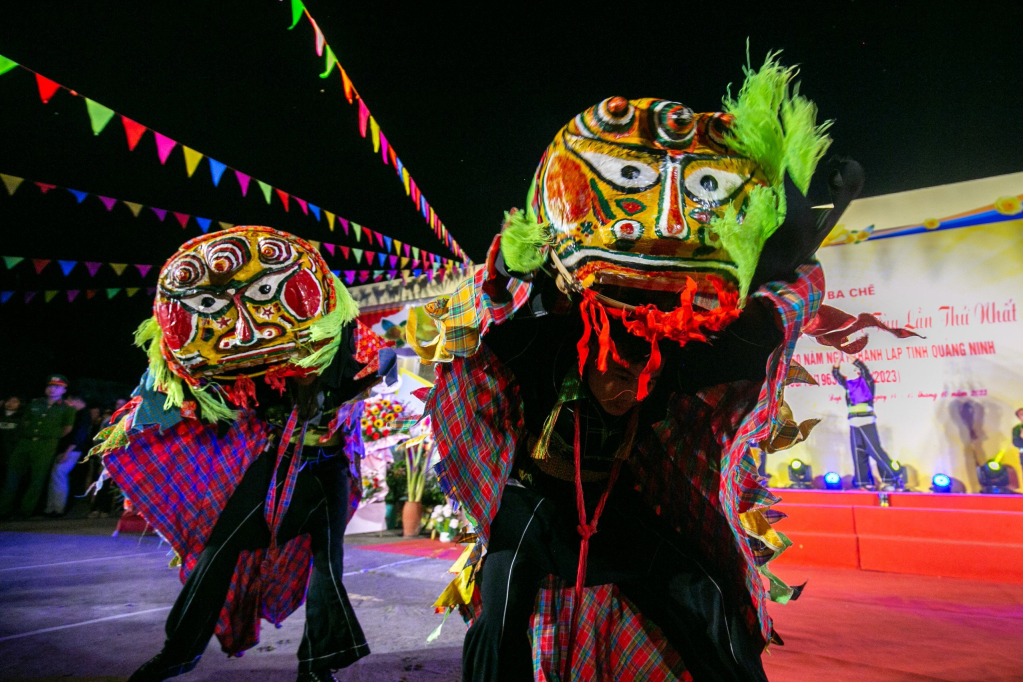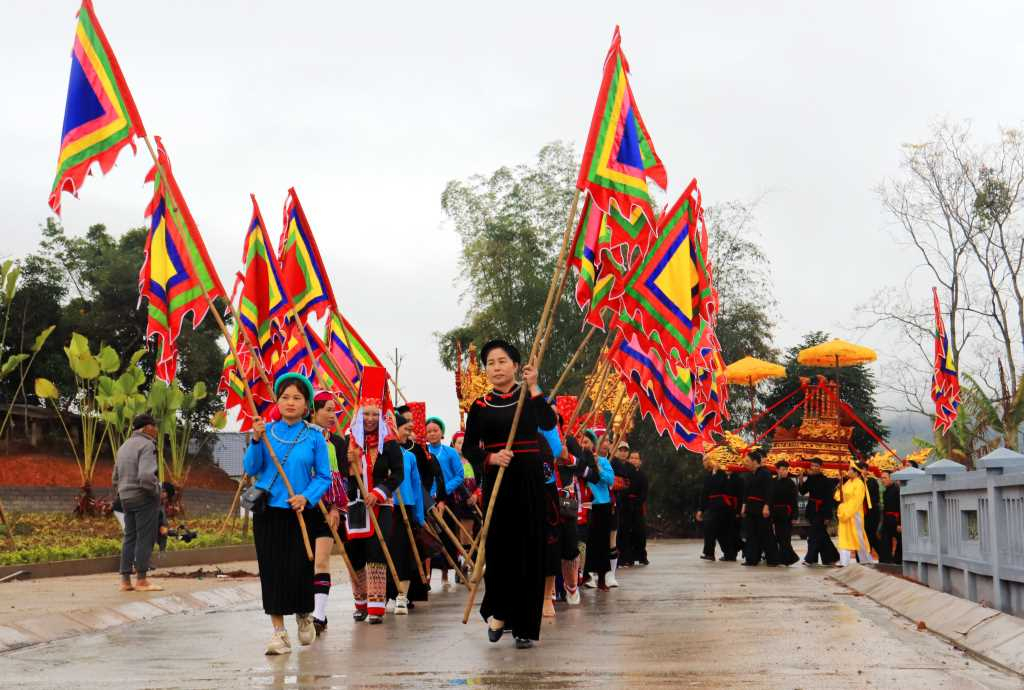Quang Ninh has not only been famous as the largest coal industrial region in Vietnam but also its precious natural and cultural heritages, both given by nature and created by humans. Its culture has interference, convergence, and unity in the diversity of Red River civilisation including marine culture, mine worker culture, the unique culture of ethnic minorities and the Buddhist culture of Truc Lam Yen Tu.

The Tay people's lion and cat dance has just been restored in Ba Che district.
Quang Ninh has a large, rich, diverse and unique cultural heritage treasure. The province is preserving and developing 637 historical and cultural relic sites and scenic spots, as well as over 2,800 intangible cultural heritages, including customs, folk games and festivals of more than 42 ethnic minority groups. In particular, there are six special national relic sites, 58 national relic sites, 82 provincial relic sites and 482 inventoried and classified relics.
There are 362 intangible cultural heritages, including six listed among national intangible cultural heritages and about 80 archaeological sites, many of which are relic sites.
Quang Ninh’s culture is also the crystallisation of the cultural identity of 23 ethnic groups residing in the province, including 22 ethnic minorities mainly living in communities in the mountainous, border and remote areas in the eastern part of the province, such as the Tay, Dao, San Diu, San Chay and Hoa.

Luc Na Temple festival is held annually in Binh Lieu district
Besides tangible and intangible cultural values, Quang Ninh’s people have been known for many unique values that were formed and cultivated over many generations.
Many experts say 'discipline and consensus' is the most expression of the revolutionary and fighting spirit of Quang Ninh mining workers. The slogan reflects their unique methods in gathering and creating the robust strength of the mining work forces.
On a social scale, local people upholding the age-old tradition of "Discipline and Unity" have long developed some typical personality traits including dynamism, creativity, generosity, and perseverance.
Such cultural identities have consistently acted as a driving force behind their desire, determination and aspiration to help their province develop rapidly and sustainably, and, turn it into a province with modern service and industry economic structure, and becoming an international tourism center, a pole of comprehensive economic growth in the North of Vietnam.
By QMG Reporters